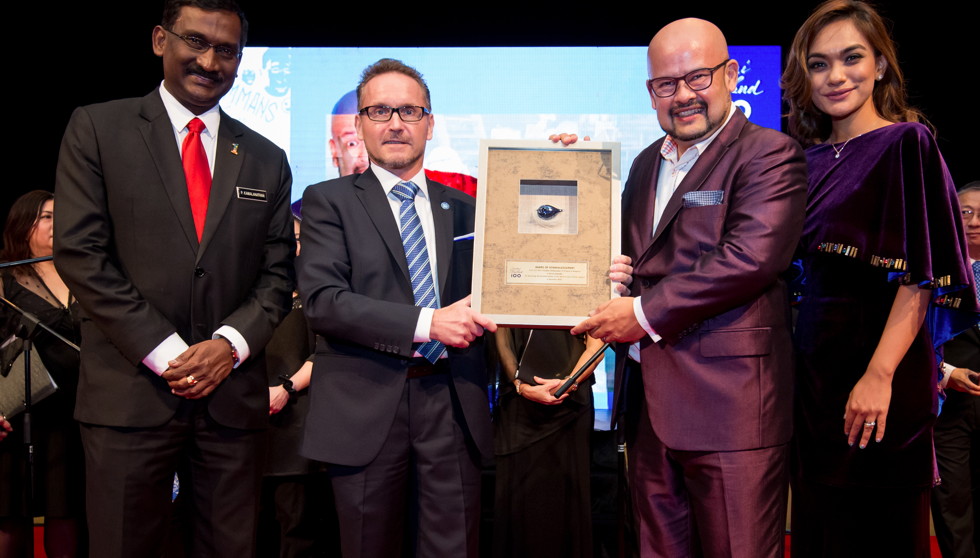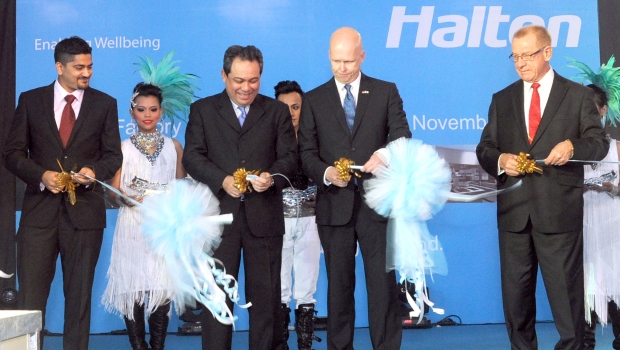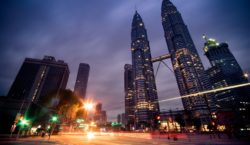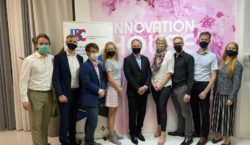Finnish-Malaysian ties took off upon the inking of an Investment Guarantee Agreement in 1985, with many Finnish companies back then drawn to Malaysia’s relatively cheaper manufacturing and technical talents and strategic location as a regional hub.

The same year investment ties were further cemented when escalator and elevator market leader KONE set foot in Greater Kuala Lumpur. In 1994, precast concrete manufacturer and system designer JEKS Engineering set up shop in the country as well. Not long after in 1996, global technology leader in indoor air solutions Halton followed suit, setting up production facilities in Malaysia in the following years.
At the same, on the consumer end, Nokia – at one time Finland’s strongest, most valuable and fastest growing corporation – made brisk sales off its mobile phones in Malaysia. In 2017, Nokia made a further investment in Malaysia by acquiring Finnish company Comptel – which has offices in Malaysia – to leverage software to improve efficiency.
This vote of confidence in Malaysia’s skilled and well-educated talent base was and continues to be significant thanks to Finland’s own position at the top of world rankings in education. Finland’s quality of higher education is the third best in the world, according to the World Economic Forum’s Global Competitiveness Report 2017–2018.
Spearheading the charge to attract more multinational investors to this talent pool in Malaysia’s capital city is a dedicated government investment promotion agency, InvestKL.
Cyber security talent
In the intervening years from when the earliest Finish investors entered Malaysia in the 1980s to the last decade, Malaysia’s talent base has only continued to draw additional investments from Helsinki.
In recent years, Malaysia’s move towards honing cyber security talents in line with the government’s goal to refocus on high-skilled high-earning tech talent has borne more fruit.
Most notably in 2006, global cyber security name F-Secure set up its first major security research centre and technical support operation outside its headquarters Helsinki – and Greater Kuala Lumpur was chosen.
The Kuala Lumpur office provides security response services, working with the Helsinki team to deliver 24/7 protection against emerging new threats to its customers.
Malaysia was selected as a key hub for F-Secure’s Asian operations because of its pool of well-qualified workers, who commonly speak English. Cheaper labour and accommodation costs as well as Malaysia’s initiative to encourage high tech companies to set up business, and its strategically optimal time zone (six hours ahead of Helsinki) were also key factors in the decision.
As of 2018, F-Secure has made Malaysia its cyber security hub for the Asia-Pacific region and serving as a base to more than 170 research and development engineers. It is also the company’s only Security Lab outside of Finland.
Training bases
Another early investor that made further investments in Greater Kuala Lumpur was Kone, which opened its first Southeast Asian training hub, Kone Academy in the southern city of Johor Bharu in 2013.
The purpose-built academy has been utilised by employees throughout the region, from service technicians to office workers and managers. At the time, the Academy joined a network of over 20 training centres around the world.
“We are proud of the new academy, which is the first purpose-built training centre in Southeast Asia.” said Kone Asia Pacific and Middle East executive vice president Noud Veeger.
The elevator and escalator brand leader then followed up with another Kone Academy in March 2018, this one to cater specifically to the growing Malaysian market.
“The Asia Pacific region has a high growth potential and it is important that we focus on growing these markets. We are in the right place and it is essential that we understand customer needs and upgrade our solutions proactively,” said Axel Berkling, executive vice president, Kone Asia Pacific.
Kone Malaysia managing director Edward Loy added: “Malaysia is a growing market and we need to ensure we retain our leadership position. This facility also affords us the opportunity to be on the cutting-edge of future technological advances and aids us on quick responses to disruptive changes, which benefits our customers as we integrate people flow into the lives of our customers.”

Production expertise
Malaysia’s strength in various engineering disciplines has also been recognised by other early investors like Halton, which moved its manufacturing facilities in Malaysia to larger premises next to its R&D facility in 2013 thanks to its rapid expansion in the region.
The new manufacturing facility spans 5000 sq. meters and employs 100 people. The main markets for the products include Middle-East, India, Japan, Korea, New Zealand, and Oceania. Halton’s customers in the region include major hotels in Singapore, Indonesia, Malaysia, Dubai, and Philippines, as well as the famous Taj Mahal in India.
Halton Group chairman Mika Halttunen said Halton Manufacturing contributed about 10% to its total revenue in 2012, and contribution from the Malaysia business was expected to increase by 10-15% yearly.
These investors have entrusted their Asia and Asia-Pacific hubs to Greater Kuala Lumpur thanks to Malaysia’s strengths and plans to continue strengthening its technology talents and investments.
In the IMD’s World Competitiveness Yearbook 2017, Malaysia ranked 24th overall out of 63 economies studied. However, it leapfrogged many more major countries in specific focus areas, ranking 4th in both investment in telecommunications as well as high-tech exports.
To further emphasise Malaysia’s growth spurt in this space, IMD also ranked the country 5th in the use of Big Data and analytics, as well as science degrees issued. Thus, it is no surprise that more and more enterprises out of Helsinki now make Greater Kuala Lumpur their first choice of a hub in Asia.





